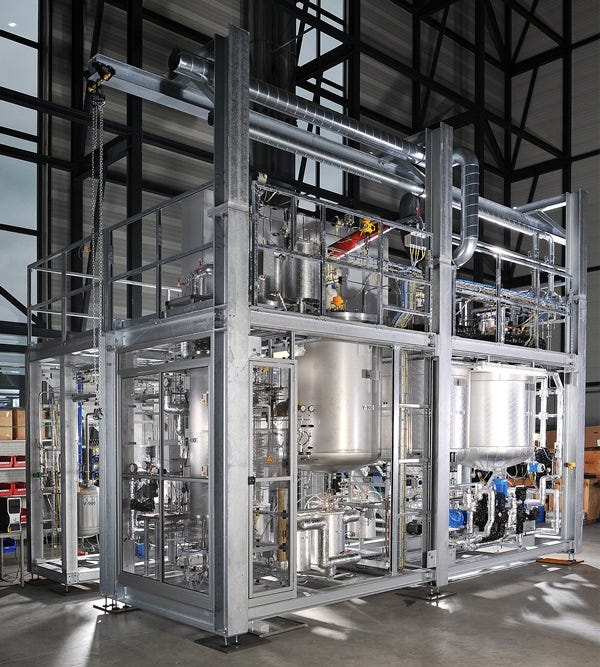We still don’t know when it will be built, or where, but one thing is already certain: when Avantium (Amsterdam, the Netherlands) does finally build its FDCA production plant, one of the first customers will be Japan-based Mitsui & Co. Ltd. Earlier this week, Avantium announced that it has signed an agreement with Mitsui to commercialize 100% biobased chemicals FDCA and PEF in Asia. As part of this agreement, Mitsui has been granted a right to purchase a sizable volume of FDCA from the first commercial FDCA plant to be constructed by Avantium.
December 11, 2015
We still don’t know when it will be built, or where, but one thing is already certain: when Avantium (Amsterdam, the Netherlands) does finally build its FDCA production plant, one of the first customers will be Japan-based Mitsui & Co. Ltd. Earlier this week, Avantium announced that it has signed an agreement with Mitsui to commercialize 100% biobased chemicals FDCA and PEF in Asia. As part of this agreement, Mitsui has been granted a right to purchase a sizable volume of FDCA from the first commercial FDCA plant to be constructed by Avantium. Avantium has been talking about constructing its plant for the past several years. In a statement, the company said that it is currently “in the preparation stage of the construction” and that it has “plans to share further details on the capacity, location and time lines for the construction in Q1 2016.”
Avantium has been talking about constructing its plant for the past several years. In a statement, the company said that it is currently “in the preparation stage of the construction” and that it has “plans to share further details on the capacity, location and time lines for the construction in Q1 2016.”
Until then, Avantium will continue to produce polyethylene-furanoate (PEF) resin at its 40 ton/year pilot plant in Geleen, the Netherlands. PEF is a biopolyester that can replace petroleum based polyesters such as PET. Avantium has developed a proprietary 2-step chemical, catalytic process to convert sugars to Furan-dicarboxylic acid (FDCA), which is a biobased alternative to terephthalic acid. The company uses FDCA to produce PEF.
Previous partnerships with The Coca-Cola Company (Atlanta, GA), Danone (Paris) and Alpla (Hard, Austria) centered on the development of bottle packaging. This new partnership with Mitsui goes a step further: Avantium and Mitsui have entered into a development and roll out agreement for PEF thin films in Asia and PEF bottles in Japan. Given its barrier performance, Avantium research demonstrates PEF can bring significant benefits as packaging material for oxygen sensitive goods such as food, beer and health care products. The parties are also partnering to launch and grow the market for other FDCA- based applications such as co-polyesters.
Japan is a very attractive market for a high performance material like PEF. The Japanese packaging industry is one of the most fast growing in the word. It is highly innovative, resulting in a large variety of packaging formats to meet the high quality standards demanded by local consumers. And over 97% of packaging in Japan is recycled.
As Avantium CEO Tom van Aken said: “This partnership with Mitsui is a unique opportunity for Avantium to unlock the growth opportunities in the Asian market, [which is] one of the fastest growing markets for packaging materials. This collaboration expands our PEF developments beyond bottles into the new application of thin PEF films.”
He added:“It is our ambition to support Mitsui and their Japanese partners and customers to launch PEF and other FDCA-based applications to the market well in time for the Tokyo Olympics.”
For Mitsui, the collaboration with Avantium is an extension of its strong bio-based chemicals portfolio, and it fits well with Mitsui’s strategy in pursuit of future bio-refinery structures, in which the company combines its strength in feedstock, project management, chemicals and end markets.
About the Author(s)
You May Also Like


